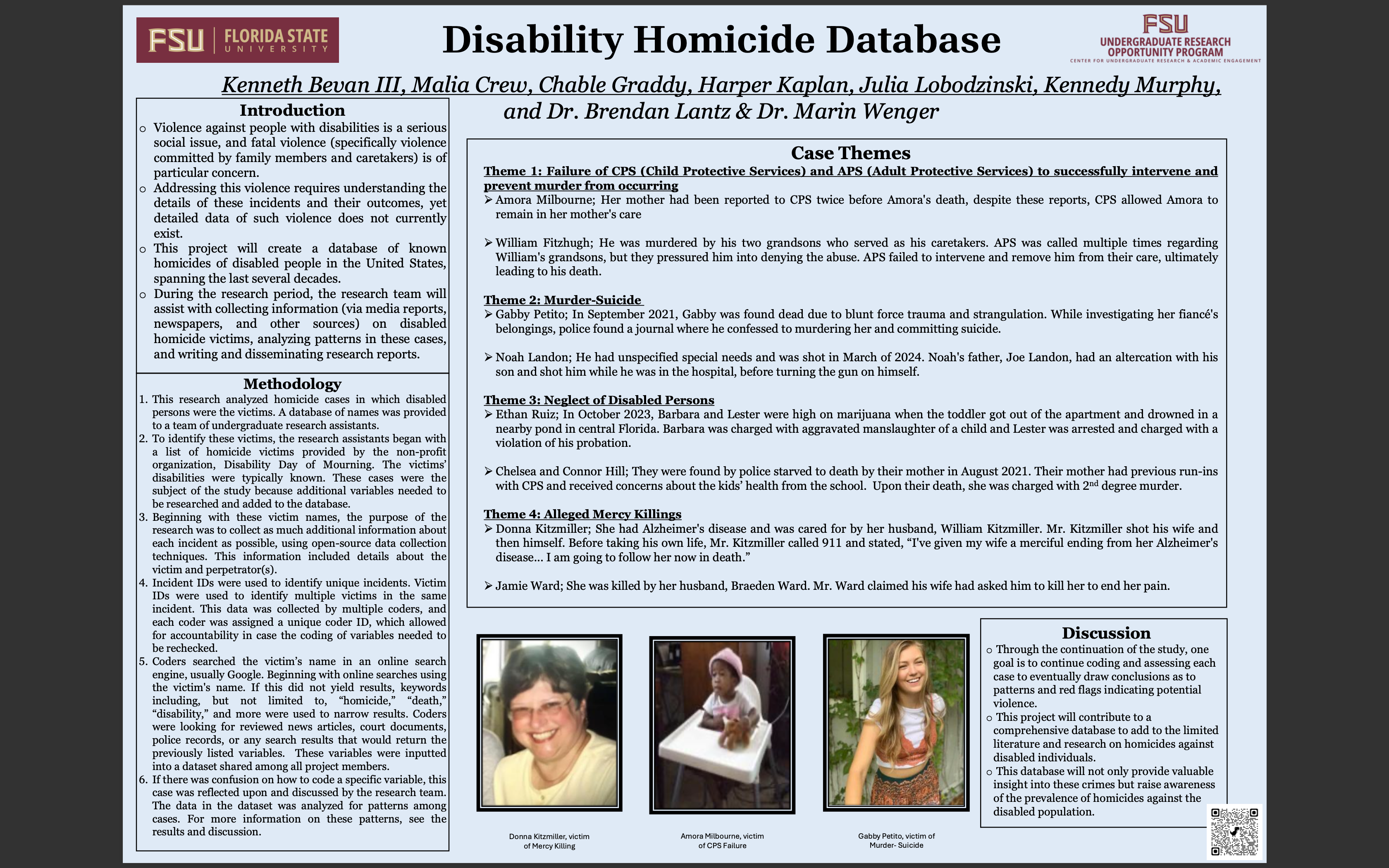Research Symposium
25th annual Undergraduate Research Symposium, April 1, 2025
Kenneth Bevan III Poster Session 3: 1:45 pm - 2:45 pm/ Poster #167
BIO
My name is Kenneth Bevan. I am a senior majoring in Cyber Criminology at Florida State University’s College of Criminology and Criminal Justice. I was born and raised in Orlando, Florida. Upon completing my graduate degree, I intend to work with the Orlando Police Department. After gaining experience in local-level policing, I aspire to join the Federal Bureau of Investigation’s Counter Cyber Terrorism Task Force. I am confident that my skills and experiences would enable me to contribute positively to the cyber security landscape of the United States.
Disability Homicide Database
Authors: Kenneth Bevan III, Dr. Brendan LantzStudent Major: Cyber Criminology
Mentor: Dr. Brendan Lantz
Mentor's Department: Criminology Mentor's College: College of Criminology and Criminal Justice Co-Presenters: Malia Crew, Chable Graddy, Harper Kaplan, Julia Lobodzinski, and Kennedy Murphy
Abstract
Violence against individuals with disabilities is a significant social issue, with fatal incidents—specifically those committed by family members or caretakers—being of particular concern. Addressing this violence requires a comprehensive understanding of these incidents; however, detailed data on such cases is currently lacking. This research project aims to fill this gap by developing a database of known homicides of disabled individuals in the United States over several decades. Researchers compiled data using open source data collection techniques, including collecting data from media reports, police records, social media, and obituaries, coding cases based on variables such as age, location, race, gender, type of violence, criminal history, and warning signs. The goal was to reach data saturation, ensuring the most complete picture of each case. This dataset enables pattern analysis through data analytics and research reports, providing patterns that can inform strategies to protect individuals with disabilities. Key indicators, such as prior criminal history or past child protective services involvement, can help law enforcement identify and intervene in high-risk situations before violence occurs. In the next phase, this project will continue gathering data and refining its approach seeking out common themes to better understand and prevent violence against individuals with disabilities. Collaboration with policymakers and law enforcement will play a crucial role in strengthening protective measures and addressing systemic gaps. Through ongoing analysis and public awareness efforts, this research aims to drive meaningful change and build a safer, more just society for individuals with disabilities.
Keywords: homicide, criminology, disability, violence, database

